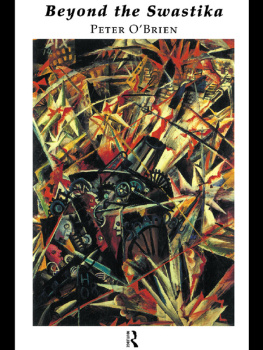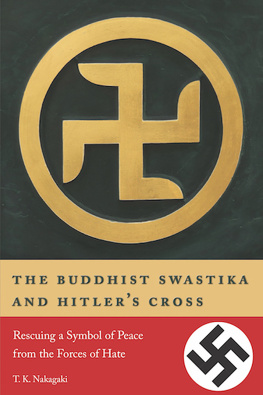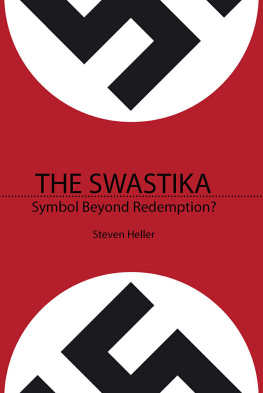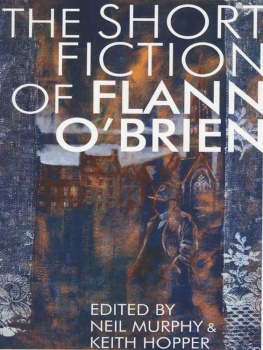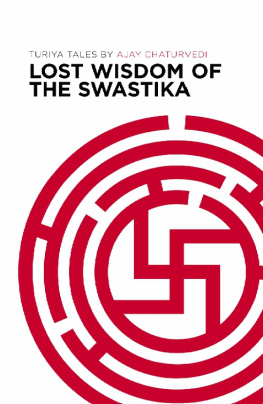BEYOND THE SWASTIKA
The constant search, however noble or necessary, for the wickedness of the covert neo-Nazi has blinded us to the pernicious underside of the reformed German liberal
Peter OBriens controversial study of contemporary Germany looks at mounting fears of a resurgent xenophobic nationalism, arguing that the problem has been misinterpreted. The real danger, he argues, is the entrenched liberalism which holds German nationalism in check.
OBrien traces among West Germanys political elites the appeal and uses of technocratic liberalism, which, he argues, overzealously protects Germanys liberal democracy to the detriment of minority groups who are denied full political participation.
This lively and original book will appeal to all those concerned by accounts of the rising tide of nationalism in Germany and elsewhere in Europe. It will be essential reading for students of German history, politics, and society.
Peter OBrien is Associate Professor of Political Science at Trinity University, San Antonio, Texas.
BEYOND THE SWASTIKA
Peter OBrien
First published 1996
by Routledge
11 New Fetter Lane, London EC4P 4EE
This edition published in the Taylor & Francis e-Library, 2002.
Simultaneously published in the USA and Canada
by Routledge
29 West 35th Street, New York, NY 10001
1996 Peter OBrien
All rights reserved. No part of this book may be reprinted or reproduced or utilized in any form or by any electronic, mechanical, or other means, now known or hereafter invented, including photocopying and recording, or in any information storage or retrieval system, without permission in writing from the publishers.
British Library Cataloguing in Publication Data
A catalogue record for this book is available from the British Library
Library of Congress Cataloguing in Publication Data
OBrien, Peter, 1960
Beyond the swastika/Peter OBrien.
p. cm.
Includes bibliographical references and index.
1. GermanyEthnic relations. 2. NationalismGermany 3. AliensGermany. 4. LiberalismGermany. 5. RacismGermany.
6. XenophobiaGermany. I. Title.
DD76.027 1996
305.8'00943dc20 9619653 CIP
ISBN 0-203-43765-9 Master e-book ISBN ISBN
ISBN 0-203-74589-2 (Adobe eReader Format)
ISBN 0-415-13851-5 (hbk)
ISBN 0-415-13852-3 (pbk)
For Patricia M. and Gerard T.OBrien
ACKNOWLEDGEMENTS
Many persons and institutions assisted me in the completion of this book. The University of Michigan and Kalamazoo College collaborated to provide me an entire semester to start the book in Ann Arbor. Trinity University thrice sent me to Germany to collect materials relevant to the project. So many colleagues generously read and constructively criticized the manuscript that listing them all here would endanger too many trees. You all know who you are and that only I bear responsibility for the claims made. I owe a debt to Caroline Wintersgill for sticking with the project when others wanted to abandon it. A wonderful collection of family and friends helped me to keep a balanced sense of perspective and not get consumed by the writing of the manuscript. Finally, I dedicate the book to Pat and Jerry OBrien, may he rest in peace. With their unconditional love, Mom and Dad have always given me the encouragement to pursue my goals, even if they turn out to be unpopular or controversial.
Peter OBrien
San Antonio
1
GERMANY BETWEEN NATIONALISM AND LIBERALISM
We seek not a German Europe, rather a European Germany.
(Helmut Kohl)
INTRODUCTION
The Chancellors paraphrase of Thomas Manns statement tellingly reveals the nagging question surrounding united Germany. The renunciation of a German Europe is plainly designed to allay ubiquitous fears of resurgent German nationalismof a Germany now proud, strong, and bossy enough to dominate Europe again. The pledge to a European Germany, by contrast, is meant as a warranty of unswerving German liberalismof a democratic, dependable, conciliatory Germany dedicated to European integration. No one, least the Germans, doubts that united Germany will lead Europe in the future. But Angst abounds over whether Germany will lead the Continent backwards to the Europe of yesteryear, ravished by destructive nationalism, or forwards to a harmonious Europe of tomorrow which finally realizes the best of its lofty liberal tradition.
This grave concern over the tension between nationalist and liberal trends is hardly unique to the newly united Germany. Since the Second World War, it has been common to read all of modern German political history as a profound and protracted struggle between the opposing forces of German nationalism and Western liberalism. The years before 1945 are typically depicted as a victory for the former and its nasty bedfellows. Despite the liberal heritage of the Aufklrung as well as sporadic flirtations with the ideas and institutions of Western liberalism, in Germany authority ultimately triumphed over liberty, obscurantism over enlightenment, utopianism over pragmatism, militarism over diplomacy, barbarity over humanity. Whether in the authoritarian Second Empire, troubled Weimar Republic, or murderous Third Reich, German nationalism always wound up smothering the faint breaths of liberalism in the land.
It was National Socialism, paradoxically, which discredited German nationalism. Defeat in and division after the war made the unity of nation and state a practical impossibility. On a deeper ethical level, the base deeds of the Nazis laid bare the moral depravity inherent in nationalist thinking. At the same time, the ignominy borne by the German people as a result of the Holocaust left them disenchanted with their own nation. In this vein Karl Jaspers wrote after the war:
The history of the German nation-state is at an end. What we as a great nation can give ourselves and the world is insight into the situation of the world today: that nationalism today is the ruin of Europe and all other continents. While nationalism is today the paramount destructive force on earth, we can begin to grasp its roots and remove it.
Thus the very liberalism the Germans so perilously eschewed before the war became their sole salvation after it. Only liberalisms respect for the dignity of the individual, it was believed, could prevent a revival of prejudice and persecution. Only its democratic political institutions could stave off the return to dictatorship. Only its penchant for rationality, compromise, and civility could insure against the hedonistic, reckless, and offensive policies which had ignited two world wars in three decades. And we have grown accustomed to understanding the history of the Federal Republic, with its anchored civil liberties, stable democracy, and amicable foreign policy, as a largely successful transformation of an entire polity and people from a nationalist to liberal orientation. Following the war, liberalism took root and blossomed in West Germany, leaving nationalism to wither in its shadow.
Still, the bitter memory of Weimar refuses to fade altogether. Then, liberal democracy succumbed to the seductive allure of nationalism. Consequently, a pall of anxiety has hung over the Federal Republic since its inception. Many Germans as well as non-Germans feel compelled to keep vigilant watch for the slightest traces of nationalist revival. In Germany, events which would appear trivial or tangential in most liberal democracies (marginal support for a xenophobic party or personality, construction of a national museum, destruction of a synagogue) can and do trigger national debates over the security and sincerity of liberal democracy in the land. German nationalism, it is feared, lies dormant, waiting to erupt and bury the liberal advancements made since the war.


